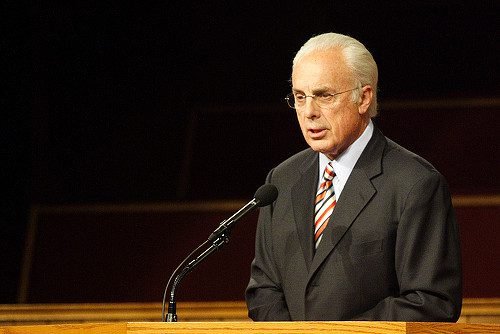This is the one hundred and eighth installment in the Songs of Sacrilege series. This is a series that I would like readers to help me with. If you know of a song that is irreverent towards religion, makes fun of religion, pokes fun at sincerely held religious beliefs, or challenges the firmly held religious beliefs of others, please send me an email.
Today’s Song of Sacrilege is The Mississippi Squirrel Revival by Ray Stevens.
Lyrics
Well when I was kid I’d take a trip
Every summer down to Mississippi
To visit my granny in her antebellum world
I’d run barefooted all day long
Climbing trees free as a song
One day I happened catch myself a squirrel
Well I stuffed him down in an old shoebox
Punched a couple holes in the top
When Sunday came, I snuck him in the church
I was sittin’ way back in the very last pew
Showin’ him to my good buddy Hugh
When that squirrel got loose and went totally berserk
Well what happened next is hard to tell
Some thought it was Heaven others thought it was Hell
But the fact that something was among us was plain to see
As the choir sang, “I surrender all”
The squirrel ran up Harv Newlan’s coveralls
Harv leaped to his feet and said, “Somethin’s got a hold on me!”
The day the squirrel went berserk
In the First Self-Righteous Church
In that sleepy little town of Pascagoula
It was a fight for survival that broke out in revival
They were jumpin’ pews and shouting, “Hallelujah”
Well Harv hit the aisles, dancin’ and screamin’
Some thought he had religion, others thought he had a demon
And Harv thought he had a weed eater loose in his fruit of the looms
He fell to his knees to plead and beg
And that squirrel ran out of his britches leg
Unobserved to the other side of the room
All the way down to the Amen pew
Where sat Sister Bertha better than you
Who had been watching all the commotion with sadistic glee
Shoot, you should’ve seen the look in her eyes
When that squirrel jumped her garters and crossed her thighs
She jumped to her feet and said, “Lord, have mercy on me”
As the squirrel made laps inside her dress
She began to cry and then to confess
To sins that would make a sailor blush with shame
She told of gossip and church dissension
But the thing that got the most attention
Was when she talked about her love life
And then she started naming names
The day the squirrel went berserk
In the First Self-Righteous Church
In that sleepy little town of Pascagoula
It was a fight for survival that broke out in revival
They were jumpin’ pews and shouting, “Hallelujah”
Well 7 deacons and then the pastor got saved
And 25,000 dollars got raised and 50 volunteered
For missions in the Congo on the spot
And even without an invitaion
There were at least 500 rededications
And we all got rebaptized whether we needed it or not
Now you’ve heard the Bible story, I guess
How He parted the waters for Moses to pass
All the miracles God has brought to this ol’ world
But the one I’ll remember to my dyin’ day
Is how He put that church back on the narrow way
With a half crazed Mississippi squirrel
The day the squirrel went berserk
In the First Self-Righteous Church
In that sleepy little town of Pascagoula
It was a fight for survival that broke out in revival
They were jumpin’ pews and shouting, “Hallelujah”
The day the squirrel went berserk
In the First Self-Righteous Church
In that sleepy little town of Pascagoula
It was a fight for survival that broke out in revival
They were jumpin’ pews and shouting, “Hallelujah”






